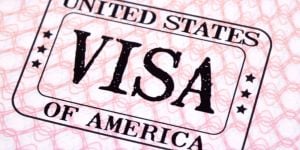
The capital of Illinois, Chicago, is one of the biggest cities in the US and by far the biggest in the Midwest. Sitting on Lake Michigan and surrounded by the Great Lakes, Chicago is a modern, dynamic city that is becoming increasingly popular among international students. Chicago has amazing dining options, neighborhoods that range from quirky to upmarket, stunning architecture, a world-famous comedy and theatre scene, and some prestigious universities to boot. To get the inside information on being an international student in Chicago, we have collected some information on the top universities and the student culture in the Windy City.
Where to study in Chicago?
According to QS Top Universities Best Student City rankings, two of Chicago's universities rank in the top 50, with the University of Chicago ranked 21st and Northwestern University tied at 50th in the QS World University Rankings 2025. There are also a number of other well-regarded universities and institutions to consider beyond the big two.
University of Chicago
The University of Chicago (UChicago), founded in 1890, is a prestigious private university situated in Hyde Park, the same neighborhood where Barack Obama resided before he became the nation's head. Obama himself taught law at this university for 12 years.
UChicago offers an extensive selection of over 50 courses and is known for its outstanding academic performance in various subjects, particularly in economics, law, political science, and science. The university has a total enrollment of approximately 16,373–17,000 students, with international students contributing about 24% of its undergraduate and graduate student population.
The university's acceptance rate for the class of 2025 was just 2.1%, making it one of the most selective institutions in the world.
The campus is home to six large libraries containing an impressive collection of books. UChicago also holds the 10th position in the QS ranking of the best American universities, surpassing most Ivy League universities. Throughout its history, the university has nurtured numerous Nobel Prize and Pulitzer Prize winners, a testament to its academic excellence and rigorous teaching methods.
Northwestern University
Northwestern University (NU) is a private university that was established in 1851. Like UChicago, NU attracts a diverse student body of over 22,800 individuals, with 5,500 international students
The university has built a reputation for its rigorous academic standards, particularly in the fields of communication, economics, science, psychology, and political science. NU is also renowned for its high-quality research, and the university regularly receives hundreds of millions in research funding from various sources.
NU boasts an impressive list of alumni who have made significant contributions to the arts and audiovisual/media field, including Stephen Colbert, Charles Busch, and Warren Beatty.
Being highly selective, the university has an admission rate of 7%. If you want to learn more about Northwestern University, you can find additional information on its website.
Other universities
Chicago is home to several prestigious tertiary institutes besides NU and the UChicago. Here are some of them:
- Illinois Institute of Technology (IIT) - Known for its vital programs in engineering, architecture, computer science, and business;
- DePaul University - Offers a wide range of programs and is particularly known for its business school and law school;
- Loyola University Chicago - A private Catholic university with strong programs in health sciences, law, business, and social sciences;
- The School of the Art Institute of Chicago (SAIC) - One of the leading art schools in the world, offering programs in fine arts, design, and art-related fields;
- Columbia College Chicago - Focuses on arts, media, and communication-related programs, including film, journalism, and performing arts;
- Roosevelt University - Known for its diverse range of programs, including social sciences, performing arts, and business;
- University of Illinois at Chicago (UIC) - Part of the larger University of Illinois system, UIC is a public research university with strong programs in health sciences, engineering, and social sciences.
These institutions offer a variety of academic programs and have a reputation for excellence in their respective fields. Be sure to research each one to find the best fit for your interests and career goals.
Tuition fees and scholarships in Chicago
In Chicago, like many other cities in the United States, international students generally face higher out-of-state tuition fees than domestic students. For instance, at UChicago and NU, the cost of studying as an international student can be over USD 60,000 per year, which is similar to the fees charged to out-of-state domestic students. At the University of Chicago, undergraduate tuition for the 2025–2026 academic year ranges from USD 67,446 to USD 69,324. Graduate tuition can be significantly higher—for example, MBA programs are around USD 84,198 per year.
At Northwestern, undergraduate tuition for 2025–2026 is USD 69,375, with a total cost of attendance ranging from USD 92,564 to USD 96,236 for on-campus students.
Recognizing that these costs may be prohibitive for some students, many universities offer scholarships and financial aid programs to make education more accessible to a diverse range of students, including international students. Scholarships are often awarded based on merit and given to students with outstanding academic achievements. Grants are also available for students with limited financial means who have strong academic backgrounds. It is important to note that these scholarships may be subject to quotas that vary from one university to another. Moreover, not all scholarships are guaranteed to be available for international students, so it is essential to contact the specific university for more information.
Both UChicago and NU provide merit scholarships and financial aid to international students. However, the availability of social criteria-based scholarships may differ between the institutions. At NU, international students can access both types of scholarships, but the social criteria-based scholarship is typically only accessible to international students during their first year of study.
Academic calendar and courses in the US
In the United States, the academic year usually begins in late August or early September. Some institutions offer January enrollment, though this is less common for international students. Most calendars span 32 to 36 weeks and follow either a semester or quarter system.
UChicago and NU use the quarter system, with four terms: fall, winter, spring, and summer. The academic year typically starts with the fall quarter.
Classes range from small group discussions to large lectures, with seminars encouraging active participation. Workloads can be heavier than in some European universities, especially at selective private institutions.
Grading system and diplomas in the US
In American universities, there are three main levels of study: undergraduate (Bachelor's), graduate (Master's), and postgraduate (Ph.D.). While degrees may resemble European ones, recognition varies by country unless part of an exchange program.
Grades are typically given as percentages and converted to letter grades from A to F. These correspond to a 4.33 GPA scale, with A as the highest and F as the lowest. The GPA reflects a student's overall academic performance.
How to apply for a student visa to the US?
International students studying in the United States must obtain a visa for their academic program. The most common visa is the F1 visa, which is for full-time students pursuing degrees (undergraduate, graduate, or postgraduate) in American universities. Alternatively, the M1 visa is designed for students enrolled in vocational educational programs and is valid for one year, renewable up to three times. The J1 visa is awarded to students participating in exchange programs with American universities while remaining registered at their home institution.
As of 2025, there is increased enforcement of F-1 visa rules related to online activity and political activism, and some high-profile cases have drawn attention to the issue. Violations could result in visas being denied and revoked, so students should remain cautious and well-informed about their digital presence while in the US.
Health insurance remains mandatory, and the cost can exceed USD 3,000 per year at institutions like UChicago. Check with your university's health services for updated 2025 rates and coverage.
Obtaining a student visa is the applicant's responsibility and usually costs around USD 300. Universities like UChicago and NU can assist with the required documents. Most non-native English speakers must take an English proficiency test (TOEFL or IELTS). Recent high school graduates may need to take the SAT, while Master's applicants may be required to sit the GRE.
Working in Chicago as an international student
International students with F1 and J1 visas can work on campus as long as they are enrolled at the university. They can work up to 20 hours per week during the semester and up to 40 hours during holidays. It is possible (under some conditions) to work off-campus with an F1 visa in your second year of study. To be able to accept employment with your student visa, the university must provide you with an acceptance letter that will allow you to obtain your US Social Security number.
Students with an M1 visa cannot work on or off campus. On the other hand, it is possible to intern for one month after four consecutive months of studies. In total, the student is entitled to a 6-month internship. In this case, you must apply for a work permit from the US government.
If you wish to work in Chicago, you can check out some job offers on Expat.com. Chicago's current job market is strong, particularly in sectors such as tech, healthcare, finance, digital marketing, education, real estate, and skilled trades. These fields often recruit directly from top universities.
Student housing in Chicago
When considering housing options in Chicago as a student, you typically have three choices: a private room, a dormitory, or a flatshare. If you prefer a diverse and international community, some residences, like the International House at UChicago, cater specifically to international students.
Living on campus may seem convenient, but off-campus options, like renting your own apartment, can be more affordable and offer more freedom. While Chicago's living expenses are rising, renting in the city center is still more affordable compared to larger cities like New York or Washington, DC.
Housing costs have risen in recent years. For example, the average rent for a one-bedroom apartment in Chicago is now closer to USD 2,000 per month. Shared accommodation or renting a room can range between USD 600 and USD 1,200, depending on location. To find suitable housing options, popular online platforms like Craigslist and Student Rent can be very helpful.
Student life in Chicago
Chicago gets called the "Windy City" for a reason. If you are from a warm country, the city's harsh climate may shock your system. High winds rush in from Lake Michigan, and winters can be snow- and ice-bound. Summers, on the other hand, offer delightful temperatures. Although it may take some time to adjust to this unique weather, living near Lake Michigan means enjoying water activities and abundant nature, almost making you forget you're in the third-largest city in the US.
As you explore the city, you'll find countless entertaining options. Visit the soaring Willis Tower, the second tallest in the country, or the serene Millennium Park with its famous reflective sculpture, the Cloud Gate, which resembles a giant silver bean. Take a leisurely stroll at Navy Pier or explore the Natural History Museum. Don't miss out on trying an iconic deep-dish pizza or a famous Chicago-style hot dog.
Chicago boasts 77 unique neighborhoods, each with its own charm and character. From The Loop to North River, Pilsen to Hyde Park, Andersonville to Lincoln Square, you'll find a vast array of communities to explore. However, like any major city in the US, Chicago has social problems, and crime and homelessness can be quite visible.
We do our best to provide accurate and up to date information. However, if you have noticed any inaccuracies in this article, please let us know in the comments section below.








